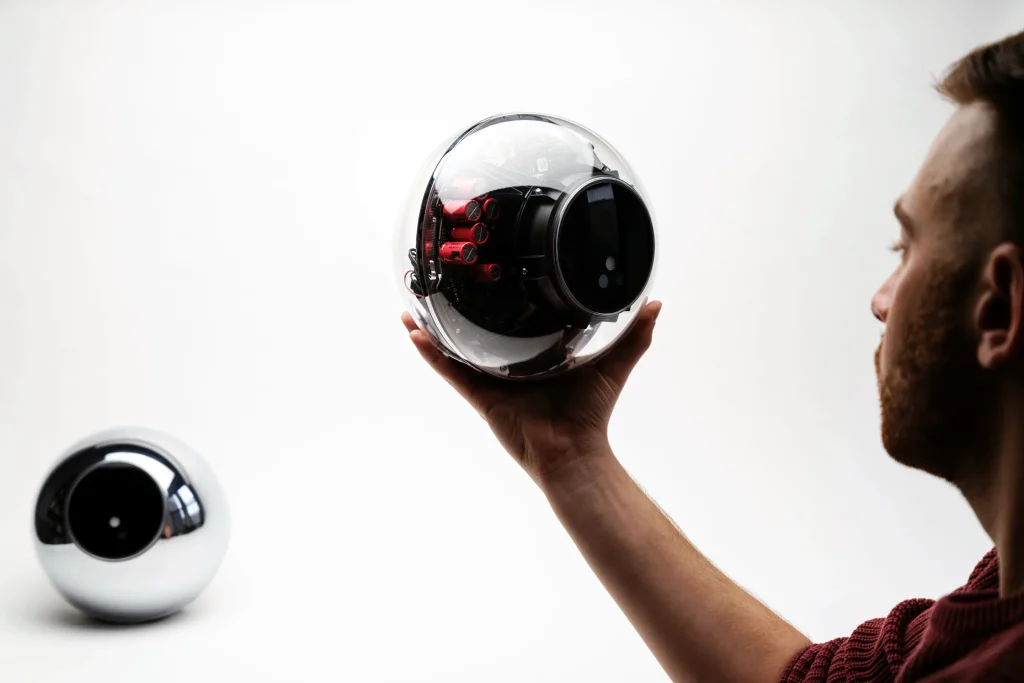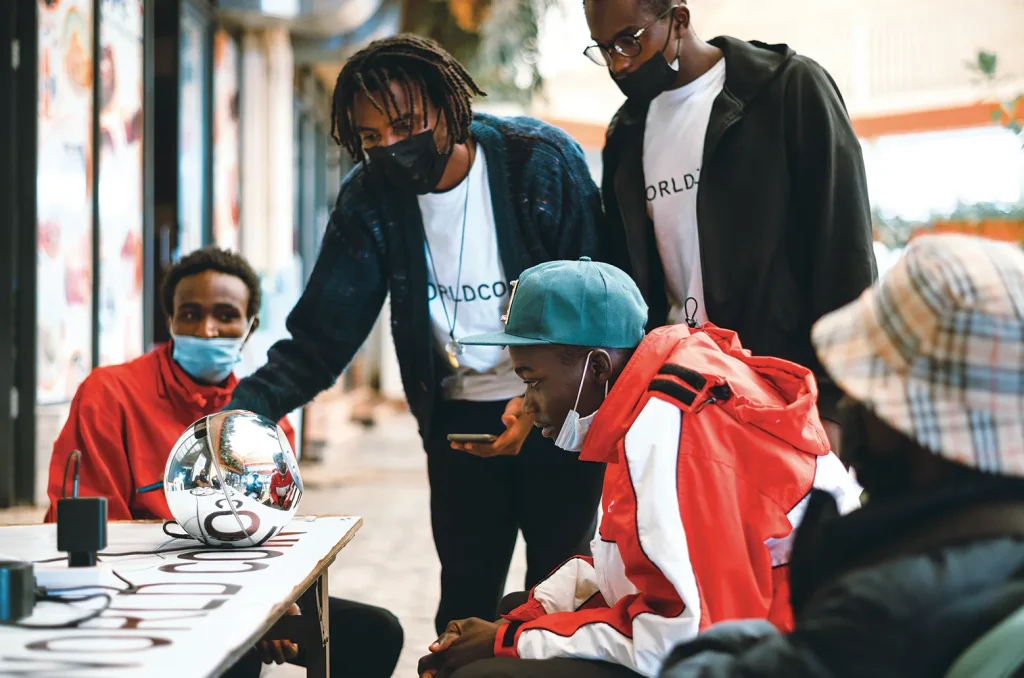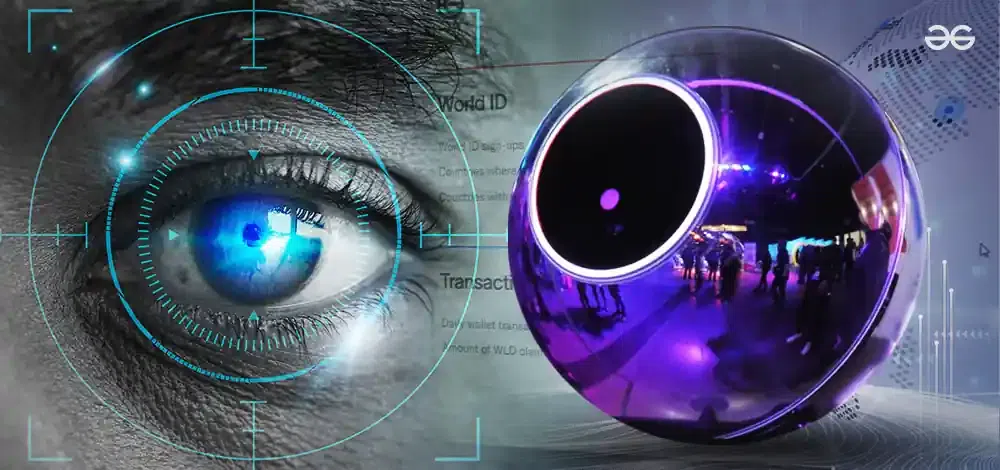Many are unfamiliar with the US digital company Worldcoin, which harbours far-reaching global digital ambitions. Worldcoin says it has created an international project to protect the world from AI’s harmful side effects once it has assumed human cognitive capabilities or even surpassed them!
Worldcoin is apprehensive that AI may replace humanity, so there is an urgent need to develop a fallback protection plan for humanity. This article investigates the veracity of those claims, peeks at the Worldcoin effort to colonize human biometric data, generates security worries, and considers whether we need this kind of intrusive technology.
Samuel Harris Altman is an American entrepreneur and investor best known as the CEO of OpenAI since 2019. He is also the chairman of clean energy companies Oklo Inc. and Helion Energy. Altman is considered to be one of the leading figures of the AI boom. He is the brain powering the colonization of human biometric data with the intent of protecting humans against the AI technology he and others of his ilk are building at such a frenetic pace.
Atman aims to scan all humanity’s eyeballs, collect biometric data, and pay the volunteers using his cryptocurrency. Governments involved in his earlier effort have developed cold feet, with only Argentina seemingly giving it the green light despite fining it. Nations involved in the earlier effort include Argentina, Kenya, Spain, Portugal, and several members of the EU.

READ RELATED: Artificial Limits: Evaluating AI’s Potential to Transform or Disrupt Human Life
In all these countries, Worldcoin has met stiff resistance. In Spain, it has been blocked, its headquarters were raided in Hong Kong, it has been suspended subject to further scrutiny in Kenya, and it was slapped with a huge fine in Argentina. In the EU, a ruling is expected on whether it can keep operating there.
Many nations are concerned about how Worldcoin processes its data, handles it, trains its algorithms, and protects children from the threats posed by this whole caboodle.
Worldcoin is designed to become the world’s most extensive privacy-preserving human identity and financial network, giving ownership to everyone. Worldcoin (WLD) is a digital identification platform that aims to provide individuals with a secure and convenient way to prove their human identity online and facilitate financial transactions and movements of people worldwide. Worldcoin is an open-source protocol, or system, created to help give everyone access to the global economy.
It’s designed to be decentralized, meaning that its supervision and decision-making will ultimately rest with its global community of users. The data it collects will generate a World ID—a digital humanness passport designed to let you prove you’re unique and human while keeping your identity private. It will also have a WLD digital token that will be freely distributed to people for utility and future governance, just for being unique.
It is using The Orb, a custom, state-of-the-art device that privately and securely verifies humanness and uniqueness using an iris code. All transactions will be carried out in World App, a fully self-custodial app built and operated by project contributor Tools for Humanity that enables payment, purchases, and transfers globally using digital assets, stablecoins, and traditional currencies.
This project is to ascribe unique attributes or signatures to all humans. Worldcoin verifies human iris scans using a basketball-sized chrome device called the Orb. Worldcoin says irises, which are complex and relatively unchanging in adults, can better distinguish humans than fingerprints or faces.
Users receive immutable codes in an online “World’s passport” to prove they are human on other platforms, plus payouts in WorldcoWorldcoin’syptocurrency.
Worldcoin launched last year and has verified over six million people across almost 40 countries. Based on recent trading prices, the total pool of WLD is theoretically worth some $15 billion.
The project says its technology is completely private: Orbs delete all images after verification, and iris codes contain no personal information—unless users permit Worldcoin to train its algorithms with their scans. Encrypted servers hold the anonymized codes and images. Here is a problem.
Many countries have accused Worldcoin of enticing biometric data donors to permit their collected data to train its algorithms. This means that the AI Altman and others are building will someday have the donor’s signatures, complicating the corporate objectives of preventing AI from gaining ground in identity theft, the vice Worldcoin aims to avoid.
The storage of collected biometric data has also raised red flags. Worldcoin claims the collected data is dismembered and stored on different servers with encrypted keys that almost nobody can hack. In practice, this is impossible to safeguard and guarantee. One day, sophisticated hackers will generate keys to open all servers and reassemble the dismembered biometric data.
Once unified, that data can be deployed to commission nefarious activities. Another lingering question is, why should the data be kept once the purpose has been accomplished? Is it for spare parts purposes, or is it an underhand method to aid the development of powerful AI with human cognitive capabilities?
AI is a copycat and needs humans to feed it with data. Therefore, the thirst for scouring human biometric data is unquenchable. While the Internet has helped AI be trained with human-level thinking, without deeper mining of human data such as eyeball iris, the development of AI’s intelligence and human emotions is truncated.
ALSO READ AI in Africa: Tanzania’s Tryst with Technology and Tradition
We have a reason to worry whether permitting our people to exchange their biometric data for tokens is worthwhile. Looks like entrenched exploitation of people with low incomes in the world.
In Kenya, where this exercise covered an estimated 350,000 people, mostly extremely poor people who were paid about $48.75 equivalent of Worldcoin tokens, they had to undergo a gruelling exercise of registering through their app and finding a buyer of their tokens since there was no direct transfer to their smartphones or bank accounts.
Many fell to scammers who urged them to transfer their tokens into their cryptocurrency accounts and disappeared without getting paid. The process is cumbersome. Kenyans had to sell their coins through cryptocurrency exchanges like Binance or find Kenya’s informal crypto economy to get their cash.
Most buyers either offered a below-market price offer or refused to honour their side of the deal once money has been pocketed into their digital accounts, leaving their victims high and dry.
Worldcoin objectives are suspicious and should be handled with great care because the colonization of human biometric data may lead to abuse, extortion, and weakening of national sovereignty as micro and macro-financial decisions will be made in far-flung nations. This will deepen even more overdependence on developed countries, a circumstance we are trying to upend without much success.


